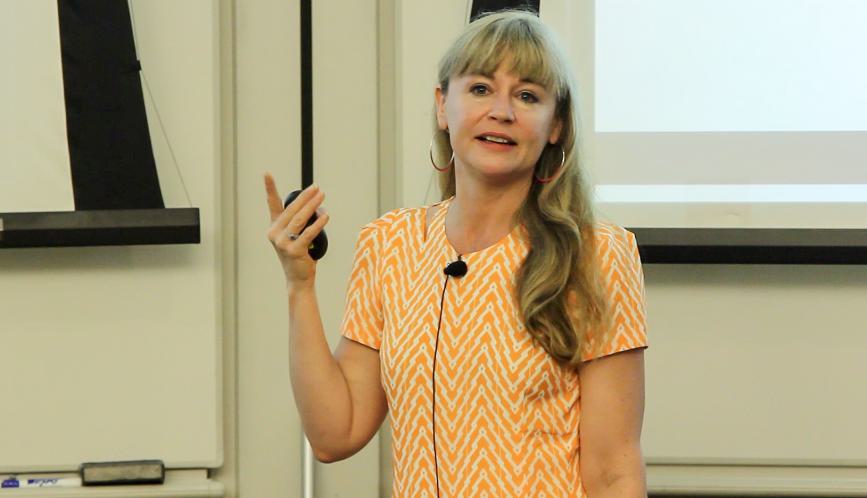Petra Todd is a leader of the Early Childhood Interventions network and a member of the Markets network. She is the Alfred L. Cass Term Professor in Economics at the University of Pennsylvania, and is a Fellow of the Econometric Society and a Research Associate of the National Bureau for Economic Research. Todd’s research focuses on labor economics, development economics, and microeconometrics.
Please describe your area of study and how it relates to current policy discussions surrounding inequality.
I work in a few different areas but I do a lot of work related to evaluation of educational policies. Education is a major factor determining earnings inequality and I think one of the ways to reduce inequality in a country is to bring up the bottom of the distribution in terms of education. I do a lot of work with data from developing countries, and I’ve written several papers on the impacts of conditional cash-transfer programs. These programs provide cash incentives for families to send their children to school. They are market-oriented policies that have been shown to be effective in a number of country contexts. I have analyzed effects of participation in such programs on school attendance, school progression and on child work and earnings. I have also done work related to how to optimally design such programs so as to achieve maximal impacts for a given budget.
What areas in the study of inequality are in most need of new research?
There’s been a lot of work on how you can get children to go to school, but in some contexts the schools are not of very high quality and the skills of the teachers may not be sufficiently strong. I would say we don’t know for sure whether getting children to stay in school longer is improving their performance on cognitive tests. We need more studies investigating whether additional years of schooling translates into higher ability and skills. A lot of developing countries don’t give that many standardized tests so that’s part of the reason it’s been hard to measure how schooling translates into performance. Also, instead of paying children to attend school, it might also be productive to pay directly for performance, but not that much is known on what types of payment for performance schemes are effective in increasing test score outcomes. We recently found in an experiment in Mexico that providing substantial payments to both students and teachers increases high school math test scores. We do not know whether test score effects might have been achieved with lower payments.
What advice would you give to emerging scholars emerging in the field?
I have a lot of graduate students that I work with who aspire to be economics professors, so I am giving advice all the time to emerging scholars. There are lots of interesting topics for research and it's important for researchers to work on areas that they are passionate about and not necessarily areas that are currently fashionable. New researchers shouldn’t feel like they have to follow exactly what other people are doing. I think it is a lot more interesting and creative to explore new questions and new datasets maybe also using new methods. I see sometimes, though, how new researchers get discouraged, because it can be very hard to get papers published. Your initial tries may be failures; you send your papers off and you can accumulate many rejection letters. People can get very discouraged and sometimes they take it personally if their paper gets rejected or if their grant application is not successful. Such an experience can even lead people to give up on doing research. It is important to be persistent and not take things too personally and to recognize that there is a degree of randomness in the publication process. Because refereeing is anonymous, referees will sometimes say things without caring too much about what they say. I would advise new scholars to not get discouraged, especially in the beginning, because it takes a while to learn how to craft a paper, to establish a track record and to get to the point where people know your name. First, work on topics that you are passionate about. Second, when you have a draft of a paper, look for opportunities to present your work at academic seminars and conferences to get some visibility and feedback. Third, revise your paper taking into account the critiques. Fourth, consult with more experienced faculty about potential publication outlets and, fifth, be persistent in sending out your paper to journals until you are able to publish it. I would also suggest that you stay flexible. Sometimes interesting opportunities arise in terms of new projects, especially in the field of development, and you want to be in a position that you can take advantage of such opportunities. This might mean being willing to work in new research areas with new people.



